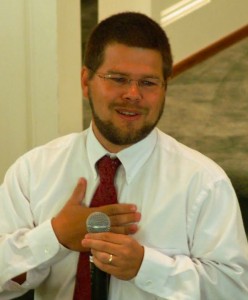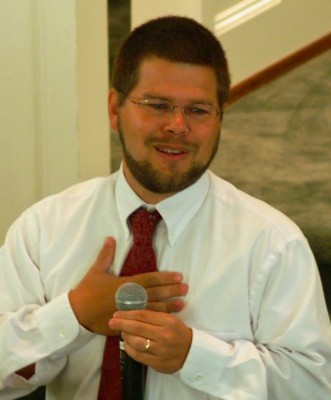
I found the application for STAR – Strategies for Trauma Awareness and Resilience – while surfing the net late at night. I was searching for some type of retreat or renewal, something that would help me sort through the grief of my grandmother’s death and the early stages of burnout in my church. My wife was surprised that the STAR description caught my attention. I had not been a victim of trauma. Trauma was not something I had talked about. I wasn’t even sure what the connection was, but I was drawn to the training.
After completing the STAR workshops, I tried to figure out how to adapt my STAR experience to my ministry with youth. Along the way I had an epiphany. The description of trauma victims seemed closely linked to the psychological issues and difficult experiences of adolescence. I started to reorient my middle-school youth ministry. I treated both the youth and parents, who were living in a time of constant change and upheaval, as people who were experiencing trauma. I provided resources and I asked questions that reframed their perspective. The results were positive.
From there I created “Chi Rho Seminar,” a middle-school youth ministry program. During the five-day seminar, youth heard presentations about substance abuse from state educators, visited homeless shelters, and learned about rehab programs. We went to an abuse shelter and listened to the stories of families starting over. We explored the “drug court” process for nonviolent offenders. We listened to the stories of teen addicts living in a halfway house.
At the end, we gathered together to put all the people we met on the STAR victim and offender cycles model, including ourselves. It was quite a powerful exercise. The youth could see the how the cycles of violence and trauma responses connected to those they met and to themselves. They realized the issues they face are often symptoms of bigger problems. Yet they could see that we each have the choice to break from a cycle of violence and pursue a path of trauma healing. The youth discovered that they are not alone.
I am thankful that STAR taught me to reframe questions as I think about the needs and brokenness of others, alongside my own pain and blame. I am thankful for a new worldview that continues to shape my life and ministry.
[Lee Yates, a Christian education curriculum writer and former youth pastor, took STAR levels I and II, and helped shape the Youth STAR curriculum. Lee lives in Indiana with his wife and two children.]
